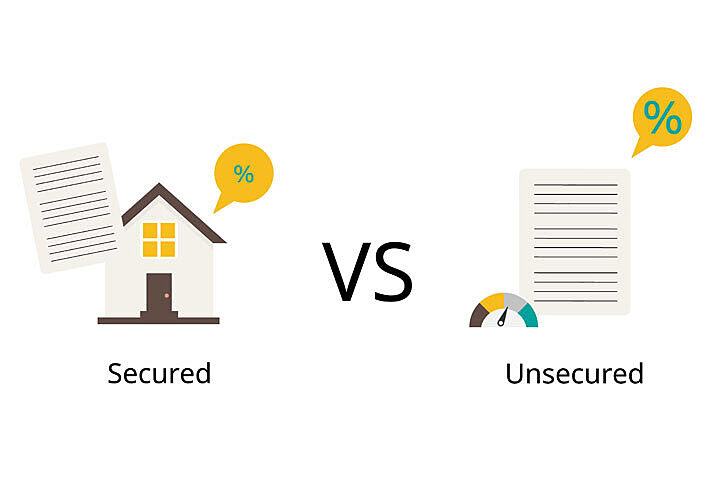Secured vs. Unsecured Loans: What’s The Difference?
When you apply for a loan or a line of credit, you may notice that the offers you get are deemed “secured” or “unsecured.” If you’re new to borrowing, you probably are curious what this means and how it will impact your application process. Let's start with understanding the type of loan you have before you sign on the dotted line.
What’s a secured loan?
A secured loan or line of credit is backed up, or "secured", by money or an item that can be repossessed in the event that you stop paying the loan - like a car or house. In other words, it’s a loan that has collateral on the line.
What categories of loans are secured loans?
Any type of loan that is specifically used for the purchase of an item that can be repossessed is a secured loan. For example, mortgages are secured loans because the home can be foreclosed upon if you stop paying the loan. Auto loans are secured loans because the car can get repossessed. Some credit cards are "secured" when you have to first deposit an amount before being issued the card. If you don't make the payment, then the issuer keeps the cash deposit.
What’s a secured line of credit?
A secured line of credit requires you to give a deposit on the credit line before you can use your card. If you stop paying the card, the credit card company keeps the deposit and will most likely close the account.
What is an unsecured loan?
An unsecured loan is a loan that has no collateral attached to it. There is no risk of repossession with an unsecured loan or line of credit. This makes it more attractive to borrowers, though the standards to get accepted for such a loan can be higher.
What categories of loans are unsecured loans?
Unsecured loans are often used for personal loans, medical financing, or even debt consolidation. If you have used payday loans, these tend to fit under the same umbrella.
What types of credit cards are unsecured?
Most credit cards are unsecured. The card issuer (typically a bank or credit union) does limit the amount you can spend with the card, but unlike secured cards, there is no deposit required beforehand.
Article adapted and published in partnership with Credit Mountain.
